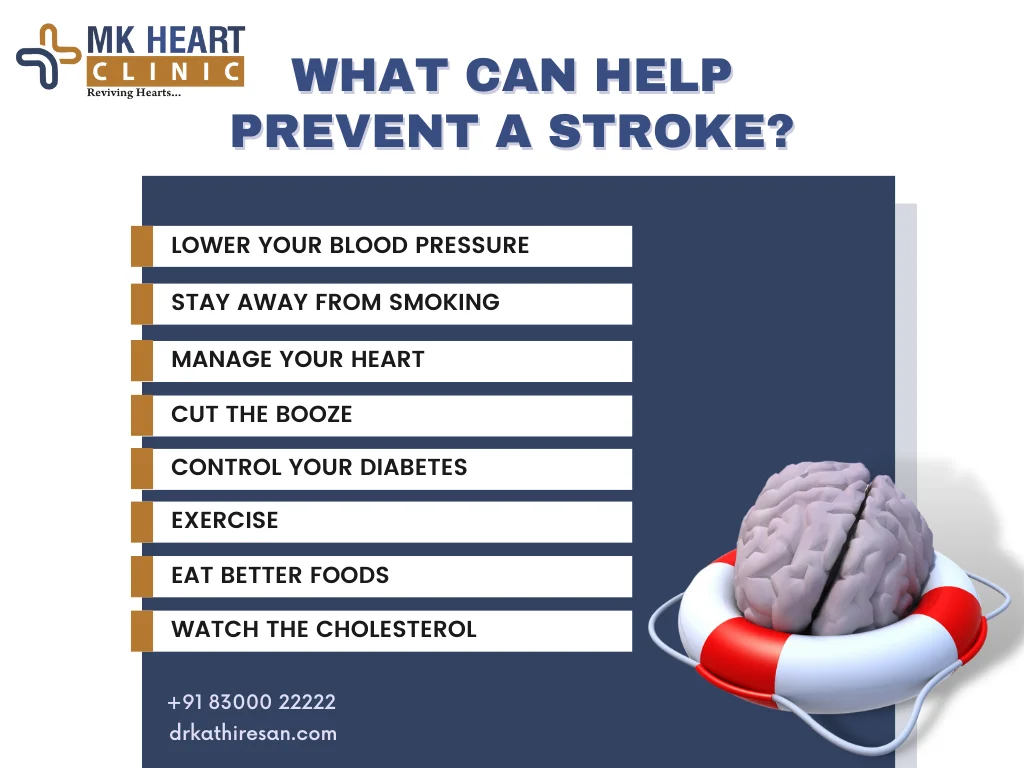Incorporating the Best Foods to Prevent Stroke into your daily diet is an essential step toward maintaining optimal cardiovascular health. Stroke is often linked to factors such as high blood pressure, high cholesterol, and poor circulation, all of which can be managed through proper nutrition. A stroke prevention diet rich in antioxidants, healthy fats, fiber, and essential vitamins helps reduce these risks. By focusing on heart-healthy diet foods like leafy greens, fatty fish, and whole grains, you can support your body’s natural ability to ward off stroke. Start making smarter food choices today to protect your future health.
10 Best Foods to Add to Your Diet That Help Prevent Stroke
- Fatty Fish – Salmon, mackerel, and sardines are rich in omega-3 fatty acids, which help lower blood pressure, reduce inflammation, and improve cholesterol levels, supporting heart health.
- Leafy Greens – Spinach, kale, and arugula are loaded with folate, potassium, and magnesium, which aid in lowering blood pressure and maintaining overall vascular health, reducing stroke risk.
- Berries – Blueberries, strawberries, and blackberries are packed with antioxidants like flavonoids, which fight oxidative stress and inflammation, key factors in reducing stroke likelihood.
- Nuts and Seeds – Almonds, walnuts, and chia seeds offer healthy fats, fiber, and essential minerals, which help manage cholesterol and support heart health effectively.
- Whole Grains – Oats, quinoa, and barley provide fiber, helping regulate blood sugar levels, lower LDL cholesterol, and improve heart health for a stronger cardiovascular system.
- Avocado – This fruit is rich in monounsaturated fats and potassium, which stabilize blood pressure and provide heart-healthy benefits, helping to minimize stroke risk.
- Citrus Fruits – Oranges, grapefruits, and lemons offer vitamin C and potassium, which improve blood circulation and support artery health, aiding in stroke prevention.
- Tomatoes – Lycopene in tomatoes has antioxidant properties that protect blood vessels, improve arterial health, and reduce bad cholesterol, supporting stroke prevention.
- Broccoli – This vegetable contains fiber, vitamins C and K, and folate, all contributing to better heart health and reduced cholesterol, helping lower stroke risk.
- Green Tea – Rich in antioxidants and catechins, green tea helps lower blood pressure, reduce inflammation, and improve vascular function, supporting a healthy circulatory system.
Benefits of Adding These Foods to Your Diet
Adopting the best diet for stroke prevention comes with a range of health benefits:
- Heart Health: Omega-3s, healthy fats, and fiber found in these foods enhance heart function.
- Blood Pressure Regulation: Nutrient-rich options like leafy greens and fatty fish naturally lower blood pressure.
- Cholesterol Management: Foods like whole grains and nuts help maintain balanced cholesterol levels.
- Antioxidant Protection: Berries, tomatoes, and green tea provide antioxidants that reduce cell damage.
- Anti-Inflammatory Effects: Many of these foods, especially fatty fish and green tea, have anti-inflammatory properties.
- Blood Sugar Control: Whole grains and avocado help stabilize blood sugar, crucial for stroke prevention.
- Improved Blood Circulation: Vitamin C in citrus fruits and potassium in leafy greens support vascular health.
By following the best diet for stroke prevention, you’ll support a healthier heart, better blood pressure control, and improved overall well-being, significantly lowering stroke risk.
Best Foods to Prevent Stroke
A stroke occurs when there’s a disruption of blood flow to the brain, either due to a blockage (ischemic stroke) or bleeding (hemorrhagic stroke). While no single food can guarantee the prevention of strokes, maintaining a balanced and healthy diet can significantly reduce the risk factors associated with strokes. Focusing on nutrient-rich foods is essential to promote cardiovascular and brain health. Here are some of the Best Foods To Prevent Stroke that you should consider including in your diet:
Increase the Number of Fruits & Veggies
A few foods to avoid stroke prevention include high-cholesterol foods such as dairy products like ghee, butter, and cheese, which can elevate LDL cholesterol levels in the body and increase stroke risk. Additionally, reducing sodium or common salt in your meals is essential. Instead, focus on garnishing your table with green vegetables like spinach, carrots, beetroot, and tomatoes. Incorporating a Heart-Healthy Diet with fruits like oranges and apples, along with whole grains, into your daily meals is a vital step toward adopting a heart-healthy stroke prevention diet.
Lessen High-Cholesterol Foods
Red meat, butter, and fried food can harm your body and increase your risk of stroke. Instead of eating all your foods while frying is not good rather, you can try baking, broiling, and steaming your food. When you are choosing meat, buy meat like skinless chicken rather than buying red meat. You can substitute meat with best Foods to Prevent Strokes like beans, peas, lentils, or tofu in your diet.

Eat Foods Rich in Omega-3
Omega-3 is a polyunsaturated fat which is the best Foods to Prevent Strokes. Omega-3 is a good kind of fat that helps to rise your good” cholesterol. It has been seen to be the best Foods to Prevent Strokes. You can find this Omega-3 in fish, flaxseed, and eggs.
Omega 3 lower bad cholesterol, which can prevent and reduce heat stroke. The American Heart Association recommends that taking at least fatty fish each week including salmon, mackerel, sardines, and herring are the best Foods to Prevent Strokes. Consult the doctor and ask how much omega-3 you can intake on daily basis.
Cut Down Your Salt Intake
Most have to carve to intake salty food sometimes like chips, nutty, etc it should be avoided strictly. Eating less sodium minimum,1,500 mg of sodium each day is the correct proportion to reduce your blood pressure and cholesterol. But here in India, most people take about 3,400 mg of sodium each day. So, it should be avoided, consuming as much less sodium is better.
Reduce adding salt in your cooking and even do not touch the salt shaker during your meal. Just to skip the salt, you can add natural herbs to add taste to your cooking like cinnamon powder, parsley, and Capricorn powder are the best Foods to Prevent Strokes.
Salt can also be hidden inside packed processing foods like pizza, canned soup, bread, sandwiches, sauces, and deli meat which should be strictly “no” to eat. While shopping looks into the level of sodium you possibly can take in one day.
Consuming less salt can reduce your blood pressure and cholesterol which are the main reasons for heart stroke. Health is wealth so always eat the best foods that can prevent your heart stroke.
How Is Stroke Related to Diet?
Certain foods can contribute to high blood pressure, high cholesterol, and obesity all of which are key risk factors for stroke. These conditions promote the development of plaque in the arteries, which can block blood flow to the brain and increase the likelihood of a stroke. Conversely, other foods can help maintain optimal blood pressure, improve circulation, and support overall cardiovascular health, making them critical for stroke prevention.
By focusing on the best diet for stroke prevention, you can work to lower these risk factors and boost your overall health. Consuming foods that promote blood vessel flexibility, reduce inflammation, and stabilize cholesterol levels can help prevent strokes in the long run. Understanding what to eat and what to avoid is the first step to a healthier lifestyle, reducing your risk of stroke and other cardiovascular diseases.
Foods To Eat Less Of for Stroke Prevention
When it comes to the stroke prevention diet, moderation and balance are key. To reduce your risk, it’s essential to cut back on certain foods that negatively impact heart and brain health.

1. Saturated Fats and Trans Fats
Foods rich in unhealthy fats, such as fatty cuts of meat, processed foods, baked goods, and fried snacks, can raise your cholesterol levels. High cholesterol is a significant contributor to plaque buildup in the arteries, a condition called atherosclerosis, which can eventually lead to stroke. Choosing lean protein sources and cooking methods like grilling or baking can help you avoid these harmful fats and improve your cardiovascular health. Foods to avoid stroke include fatty meats, deep-fried foods, and many commercially baked goods.
2. Excess Salt (Sodium)
High salt intake is directly linked to high blood pressure, a major stroke risk factor. Processed foods, canned soups, and fast food often contain large amounts of sodium, which can raise blood pressure and damage blood vessels. Reducing your salt intake by choosing fresh or minimally processed foods and using herbs and spices for flavor can help maintain healthy blood pressure levels. The best diet for stroke prevention includes lowering sodium levels and focusing on whole, unprocessed foods.
3. Sugary Foods and Beverages
Excessive sugar consumption, particularly from sugary drinks like sodas and energy drinks, can lead to obesity, high blood pressure, and increased inflammation—all factors that elevate stroke risk. Sugary snacks and processed foods also contribute to blood sugar spikes, increasing the risk of diabetes, which is another stroke risk factor. The stroke prevention diet includes limiting your intake of sugar-laden foods and opting for natural, whole foods like fruits, vegetables, and whole grains. By cutting back on sugary foods, you’re improving both your brain and heart health.
4. Refined Carbohydrates
Refined carbs, found in white bread, pastries, and other processed grains, can contribute to weight gain and insulin resistance, both of which are linked to stroke risk. These carbohydrates cause blood sugar spikes, leading to inflammation and contributing to plaque buildup in the arteries. The best diet for stroke prevention recommends replacing refined carbohydrates with whole grains, such as oats, quinoa, and brown rice. These alternatives provide fiber and essential nutrients, helping to maintain a healthy weight and reduce inflammation.
5. Alcohol (Excessive Consumption)
While moderate alcohol intake may have some heart benefits, excessive drinking can raise blood pressure and increase your risk of stroke. Studies show that heavy drinking can contribute to poor circulation and promote clotting, both of which are linked to stroke. The stroke prevention diet advises limiting alcohol consumption to one drink per day for women and two drinks per day for men. Opting for a balanced and moderate intake can help reduce the negative impact of alcohol on your stroke risk.
🥗 Mediterranean Diet
The Gold Standard of Stroke Prevention
The Mediterranean diet isn’t just a trend—it’s a scientifically backed eating pattern that reduces the risk of cardiovascular diseases and strokes. Loaded with healthy fats, fiber, and antioxidants, this diet is the foundation of the best anti-stroke diet.
Key Elements of the Mediterranean Diet
- Healthy fats from olive oil, nuts, and seeds
- Fresh fruits and vegetables every day
- Whole grains like quinoa, brown rice, and oats
- Lean protein sources such as fish and legumes
- Limited red meat, with preference for poultry or plant-based proteins
Best Foods To Prevent Stroke within the Mediterranean Diet:
- Salmon and sardines (omega-3-rich)
- Leafy greens (spinach, kale, arugula)
- Tomatoes and berries (high in antioxidants)
- Walnuts and almonds (healthy fats)
Following the Mediterranean diet is widely considered the best way to prevent a stroke and has been recommended by the best advising clinic to prevent stroke globally.
🚫 Cut the Salt and Sugar: Silent Stroke Triggers
Excessive salt and sugar intake can quietly elevate your stroke risk. Sodium raises blood pressure, while high sugar levels contribute to obesity and diabetes—both of which are major stroke risk factors.
Why You Must Limit Salt and Sugar
- Salt increases fluid retention and blood pressure
- Sugar leads to insulin resistance and arterial damage
- Both cause chronic inflammation and vascular stress
Stroke-Safe Alternatives
- Use herbs and spices instead of salt for flavor
- Switch to natural sweeteners like stevia or honey
- Choose fresh fruits over sugary desserts
- Eat homemade meals instead of processed foods
Reducing your intake of salt and sugar is a core principle of the best anti-stroke diet and is regularly promoted by the best advising clinic to prevent stroke.
Preventing Strokes: 5 Essential Measures
Maintain a Healthy Diet
- Consume a diet rich in fruits, vegetables, whole grains, and lean proteins.
- Opt for foods with low saturated and trans fats, reducing the risk of cholesterol buildup in arteries.
Regular Physical Activity
- Engage in regular exercise to promote cardiovascular health and maintain a healthy weight.
- Aim for at least 150 minutes of moderate-intensity exercise per week.
Control Blood Pressure
- Monitor and manage blood pressure through lifestyle modifications and medications as prescribed by healthcare professionals.
Quit Smoking
- Smoking significantly increases stroke risk. Quitting smoking reduces this risk and contributes to overall cardiovascular health.
Manage Diabetes
- Effectively manage diabetes through medication, diet, and regular monitoring to prevent complications, including strokes.
Tips for Healthy Eating and Stroke Prevention
- Choose Whole Foods: Focus on whole, unprocessed foods such as fruits, vegetables, and whole grains, which are the best Foods to Prevent Stroke.
- Reduce Salt Intake: Too much salt can raise blood pressure, increasing stroke risk. Opt for herbs and spices to flavor your meals instead.
- Incorporate Healthy Fats: Replace unhealthy trans fats with heart-healthy fats from avocados, nuts, seeds, and fatty fish to avoid stroke.
- Stay Hydrated: Drink plenty of water throughout the day to support optimal circulation and prevent blood clots.
- Limit Sugary and Processed Foods: These foods can increase inflammation and negatively affect heart health, so focus on the best Foods to Prevent Stroke to keep your diet on track.
Conclusion
Incorporating the best foods to prevent stroke into your diet is a crucial step toward maintaining a healthy heart and reducing the risk of stroke. Foods rich in antioxidants, healthy fats, fiber, and essential nutrients work together to improve blood flow, lower cholesterol levels, and regulate blood pressure. Avoiding processed foods, excess salt, and unhealthy fats is equally important to protect your cardiovascular health. By adopting a stroke prevention diet and focusing on nutrient-dense options, you can significantly enhance your overall well-being. Remember, a balanced diet is not just about preventing stroke but also about promoting long-term health. Start today by embracing Stroke and Diet with heart-friendly foods and making small but impactful changes to your daily meals.
Read also: Chennai Heart Clinic

